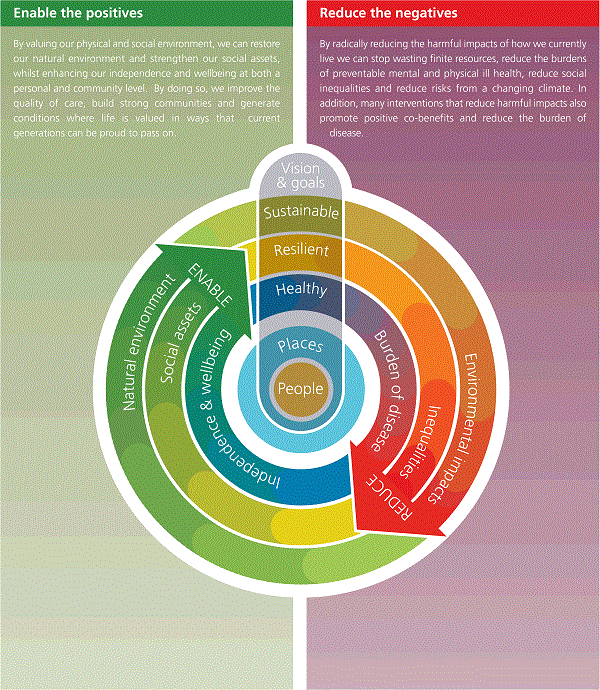Pranab Basu has been a hands on caregiver for his wife, and has now devoted himself to helping and counselling people suffering from Cancer. He talks about the importance of counselling in Palliative Care.
What is the role of Palliative Care?
World Health Organization defines Palliative Care as "to prevent and relieve suffering by means of early identification and impeccable assessment and treatment of pain and other related problems, physical, psychosocial and spiritual".
The intrinsic value of Palliative Care lies in the interdisciplinary team effort of providing physical, psychological, social, spiritual and existential needs of patients. It is a wholesome approach and the service is provided not only by attending doctors, trained nurses and caregivers in the family, but also by the psychologists, social and cultural workers and spiritual counsellors.
Padma Shri Dr M R Rajagopal, also known as the 'father of palliative care in India' has been advocating vigorously the need of Palliative Care in India. According to him, Palliative Care in India is accessible to fewer than 1% of the people who need it
The need for Palliative care may arise at any time point during the trajectory of a life threatening disease, like Cancer.
The Lancet Commission on Access to Pain Relief and Palliative Care in 2017 finds that 61.5 million people around the world have "serious health related suffering" which necessitates Palliative Care. At least 10 million of them are in India. Palliative Care does not mean keeping the patient indefinitely in the hospital. It actually means keeping him in the hospital as long as it is absolutely necessary and after that providing him with home care to enhance the quality of life. Herein comes the vital role of a caregiver.
I know this particularly well as I have been the sole caregiver of my beloved wife who fought a terrible battle against Metastatic Colon Cancer. And presently by gaining more experience counselling the cancer patients referred to the Eastern India Palliative Care, Barrack pore, West Bengal by the radiotherapy department of government hospitals.
Importance of counselling
A diagnosis of cancer always scares a patient, specially when it is diagnosed in an advanced stage and is metastatic. Depression, anxiety, anger and confusion may result after knowing of their life threatening ailment here comes the vital role of a counsellor to start psychosocial therapy which will boost the mental strength to battle this condition. In addition, the family members need to be counselled to keep the patient in better quality of life. A good counselling follows the concept of good bonding between the counsellor and the patient. I believe that counselling is not a static aspect but a dynamic aspect depending on different situations like the prognosis of the disease, family structures as well as the socio economic status of the patient.
A few things that a counsellor should do are:
- Should have preliminary knowledge of different types of cancer/other conditions and satisfy any query from the oncologist.
- Talks to the patient/family member in order to gain his/her confidence.
- Must get the feel of the mental health of the patient so as to plan how to boost his mental power and will power. There should be empathy between the patient and counsellor.
- Should convey the message that he/she is not isolated, rather, in good company.
- Should assure that the belief and the concerns of the patient are not being ignored by encouraging him to pour out her/his heart
- Should guide on nutritious meals to be taken to improve immunity.
- Should advise the patient to listen to music/song, to read story books, to chat with family members so as to be distracted from his/her own illness.
- A number of sittings with the patient will enable the patient to regain power to combat and the smile on her/his face is the ultimate achievement of the counsellor.
Case Studies based on my experience
- Recently a college girl (20years), unable to walk or sit for long even after undergoing 25 radiations, was engulfed with disappointment. While talking to her, I realized that she is of an independent nature and I helped boost her confidence She has promised to use her will power to be able to walk independently.
- A septuagenarian having carcinoma of prostate and afterwards hypo pharynx with bone metastasis has been combating for 7years.He is now under palliative care. When I met first him and his wife I felt happy at his mental power. Recently, due to poor prognosis, he is engulfed with despair, not only due to disease but also due to being isolated from son and daughter. On regular counselling he is now to some extent steady in mind and counselling continues through telephonic conversation. He has regained confidence in himself. It is the positive side of counselling.
- When I first met a wife of a person (49),I realized she has been grappling with her husband's lung cancer for 4years.She comes to the clinic to take morphine for pain management. I talked to her husband over telephone and he was very pleased. The patient in this case cooperated with the doctor and the counsellor and diligently followed the medicine and diet chart.
These case studies substantiate the point that Palliative Care is complete only when counselling is effectively applied.
Reference
WHO definition of palliative care, Geneva, Switzerland. WHO 2018(cited 2018 March 21)
Rajagopal M R, Joransin DE. India: Opioid availability. An update. J pain Symptom Manage 2007May33(5)615-22
Credits : PatientsEngage - Online Patient and Caregiver Healthcare Platform

This is very informative write up.
ReplyDelete